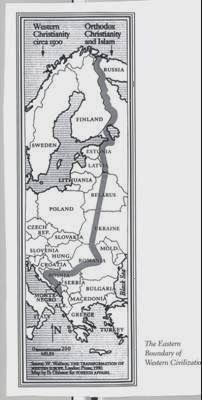IF IT AIN’T BROKE DON’T FIX IT!
Beware Europe’s rhetoric (and America’s fears) about what it wants to be. Focus on what it is.
By Andrew Moravcsik - professor of Government at Harvard University’s Centre for European Studies
Newsweek March 4 2002
FROM THE UNITED STATES IN 1787 TO EASTERN EUROPE in 1989, new constitutions bave almost always come in response to crisis. Yet nothing threatens the European Union today. The single market is a success. The single currency is a reality. Enlargement proceeds apace, as does coordination of defense, police and immigration policies. The EU is bere to star and, many believe, poised to become a full-fledged "superstate" supplanting the traditional nation-states of Europe. Nowcomes the drive for a European constitution. The case for it can be summarized in a word: democracy. Many Europeans view theEU as a distant, unaccountable technocracy. Only the relatively weak European Parliament is directly elected. At the powerful European Commission in Brussels, Eurocrats rule. Often diplomats and civil servants, not politicians, represent the member govemments, and their meetings are often secret. One needn't be an anti-globalist or a Tory Euro-skeptic to have misgivings about such an unusual system of govemance. Yet in dealing with this so-called democratic deficit, is the answer to be found among more mdical solutions proposed so far: direct election ofthe commission, more majority voting, perhaps the creation of pan - European political parties or maybe a new chamber to represent national parliamentarians?
No. And the reason is that there is, in fact, little, if any, democratic deficit in Europe. Here's why:
Despite the hyperbole, the EU is no technocratic superstate. Its de facto constitution, the (revised) Theaty of Rome, strictly limits its powers. Brussels has no autonomous police or military. It employs fewer officials than a modest European city, and EU regulations must ultimately be reformulated and administered by national authorities. And while European officials enjoy exceptional autonomy on a narrow range of issues - central banking, constitutional adjudication, antitrust prosecution, oversight of certain safety regulations and intemational-trade negotiations –such functions arguably should be left to technocrats. In most countries, they are.
The EU has almost no power to tax and spend . Policies that voters care about most - social welfare, pensions, education, infrastructural investment - remain almost exclusively in the hands of national governments. EU spending is capped at 3 percent of national levels, and there is no prospect formore. Without fiscal discretion, politics in Brussels remains much cleaner than in most EU member states. If "taxation without representation" defines tyranny, as James Otis and other Americans held 200 years ago, then European institutions with so few fiscal means can hardly be criticized.
Democratically elected national governments dominate EU decision making. No legislation is possible without at least 70 percent of their weighted votes - a larger majority than required to amend the U.S. Constitution. Policymaking takes pIace under the scrutiny of 15 govemments, each jealous of its prerogatives.
Consensus decision making. Democratic accountability. Separation of powers. Decentralization. Transparency. These qualities are so entrenched in the EU that, behind the scenes, there's little genuine pressure far major reform. Thus the current constitutional debate is unlikely to do more than put old wine in new bottles.
Why, then, the hubbub? The answer has more to do with short-term public relations than real constitutional deliberation. Politicians in the most Euro-federalist countries, however sincere their belief in Europe, have every incentive to be international idealists. Foreign Minister Joschka Fischer has grabbed this mantle in Germany – one that made his celebrated predecessor, Hans- Dietrich Genscher, the country's most popular politician for nearly two decades. Leaders elsewhere, not least in Britain, have been spooked by low public regard for Europe and right-wing Euro-skepticism. For these reasons, European leaders have called a constitutional convention that few of them really want.
The risks are great. Mobilizing thepublic around "democracy”, "constitutionalism" and other ill-detined ideals is a recipe for demagogy. This is the lesson of various referendums on EU issues aver the past 10years, most recently in Ireland. "Ifyou don't know, vote NO!" Or so went a popular slogan among a citizenry that strongly supports EU membership whenever concrete interests are at stake. The moral: if it ain't broke, don't fix it.
Let us appreciate howmuch Europe has achieved. We should not be trapped by rhetoric or fears about what it aspires to be. The EU is not a United States of Europe in the making. Instead, it should be seen for what it is- the most successful intemational organization in history. The secret of that success lies not only in the Europeans' willingness to centralize certain types of political power, but also in knowing how to mold and limit that power. Americans may tind it flattering that today's Europeans look to the United States of 1787 as a model. But when it comes to resolving the intemational problems of globalization, both might better look to the EU itself.

Commenti
Posta un commento